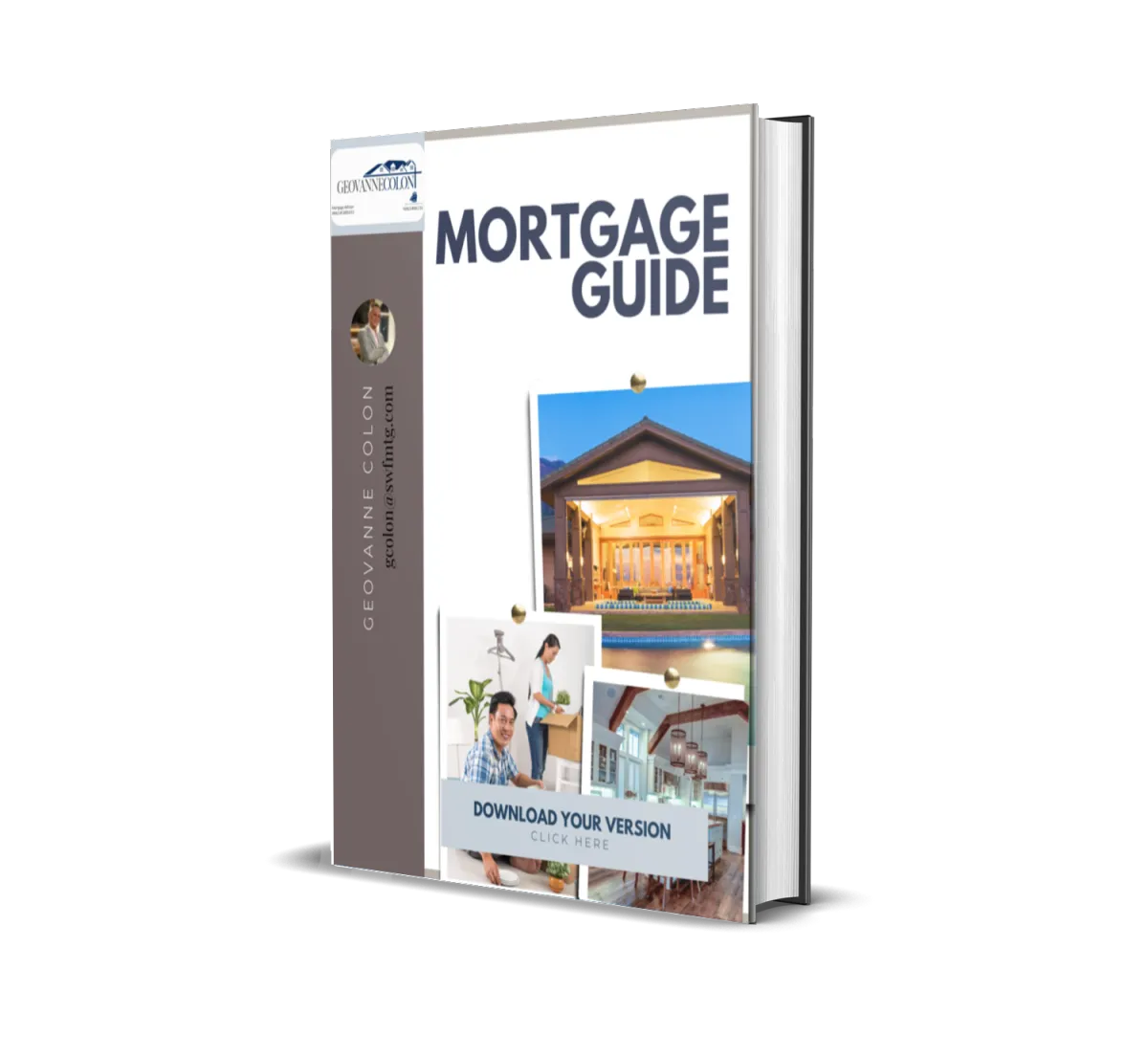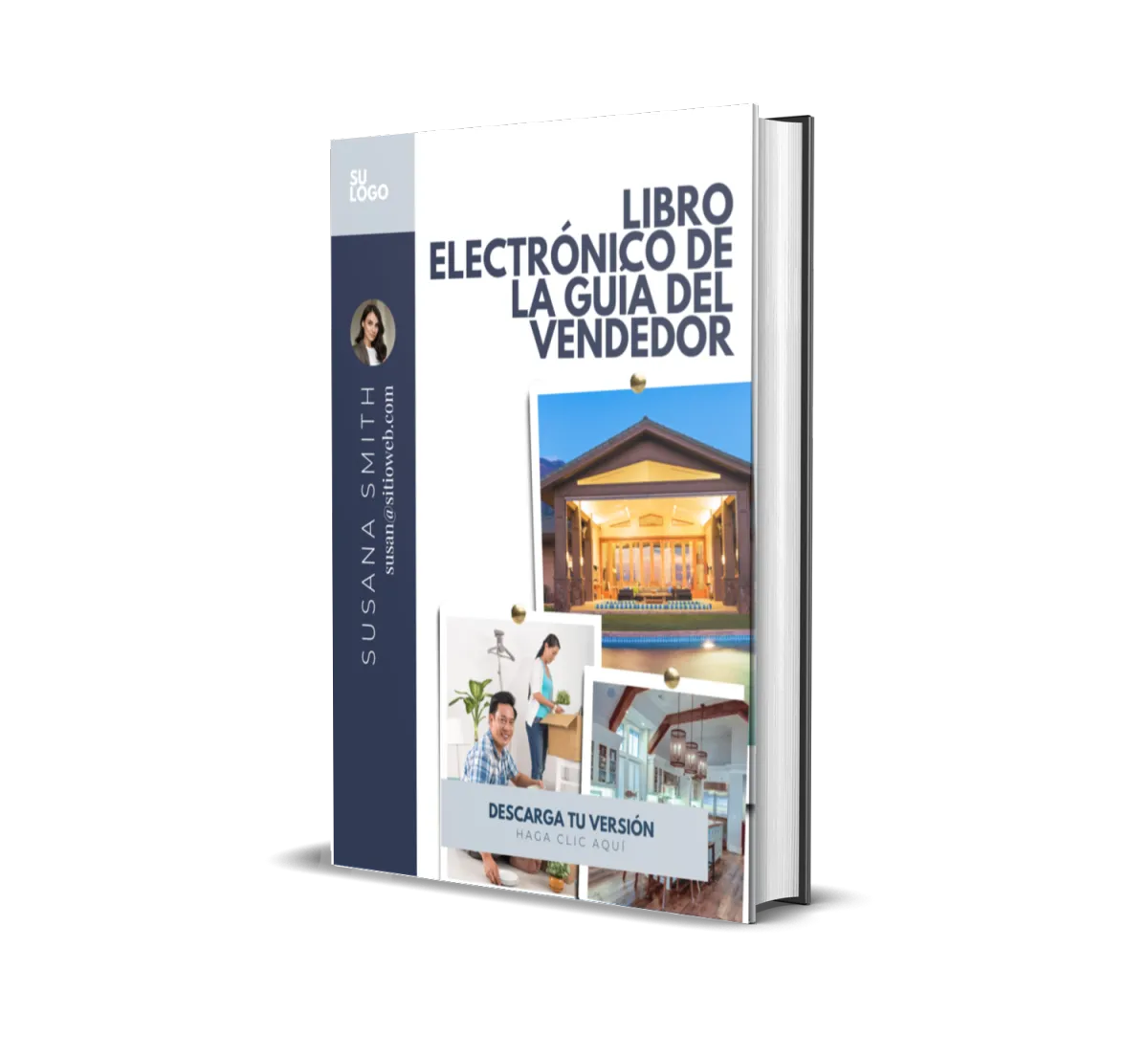617-821-1757

Looking For FHA Loans?
Apply today for the mortgage
that’s right for you.
Unlock Low Rates with Ease
Discover how Geovanne Colon simplifies the mortgage qualification process for you.
Apply today for the mortgage
that’s right for you.
Unlock Low Rates with Ease
Discover how Geovanne Colon simplifies the mortgage qualification process for you.
Low Rate.
Zero Hassles.
Get a free quote
Low Rate.
Zero Hassles.
Get a free quote
Feel Overwhelmed by Mortgage Choices? I Understand.

Feeling Lost in a Sea of Mortgage Options? Finding the right mortgage can be a daunting task. With an overwhelming array of rates, terms, and lenders, it's easy to feel lost and uncertain. Are you worried about high interest rates, hidden fees, or choosing a mortgage that doesn't fit your long-term goals?
Why Choose Us?
Ready to Start?
Your perfect home won't wait forever, and neither should you. Begin your journey today with a loan officer that puts you first. By choosing us, you're not just getting a loan – you're gaining a lifelong partner in all your mortgage endeavors.
Start your no-obligation consultation now and join the myriad of satisfied homeowners who have unlocked the doors to their future with ease and confidence. Dive into our world of simplified lending, and let's turn your homeownership dreams into reality.
Welcome Home!
Loan Programs We Help With
Seamless Solutions, Limitless Possibilities
Residential Mortgage Programs
1. FHA Loans
Federal Housing Administration (FHA) Loans
• Suitable for first-time homebuyers
• Low down payment options (as low as 3.5%)
• Requires mortgage insurance
• Lenient credit scores accepted
• 203K Renovation Loans Available
2. Conventional Loans
Conventional Mortgage Loans
• Preferred by borrowers with stronger credit
• Down payments as low as 3%
• Available in fixed or adjustable rates
• No government insurance premiums
• HomeStyle Renovation Loan Available
3. USDA Loans
US Department of Agriculture (USDA) Loans
• Ideal for eligible rural and suburban homebuyers
• Zero down payment
• Low insurance costs
• Income and geographic restrictions apply
4. VA Loans
Veterans Affairs (VA) Mortgage Loans
• Exclusively for veterans, active-duty service members, and eligible spouses
• No down payment required
• No mortgage insurance needed
• Competitive interest rates
A. ITIN - No Social Security Loans
• For borrowers with an Individual Tax Identification Number
• Lacks Social Security number
B. 1099 Loans
• Designed for independent contractors or self-employed individuals
• Based on the 1099 tax form income
C. VOE Only
• Verification of employment as the primary source of income validation
D. Asset Depletion
• Utilizes borrower's liquid assets for qualification purposes
E. Bank Statement Loans
• Income based on bank statements, suitable for self-employed borrowers
F. DSCR - Investor No Income Verification
• For real estate investors, using property cash flow as a qualification metric
Non-Qualified Mortgage (Non-QM) Loans
Loan Programs We Help With
Seamless Solutions, Limitless Possibilities
Residential Mortgage Programs
1. FHA Loans
Federal Housing Administration (FHA) Loans
• Suitable for first-time homebuyers
• Low down payment options (as low as 3.5%)
• Requires mortgage insurance
• Lenient credit scores accepted
2. Conventional Loans
Conventional Mortgage Loans
• Preferred by borrowers with stronger credit
• Down payments as low as 3%
• Available in fixed or adjustable rates
• No government insurance premiums
3. USDA Loans
US Department of Agriculture (USDA) Loans
• Ideal for eligible rural and suburban homebuyers
• Zero down payment
• Low insurance costs
• Income and geographic restrictions apply
4. VA Loans
Veterans Affairs (VA) Loans
• Exclusively for veterans, active-duty service members, and eligible spouses
• No down payment required
• No mortgage insurance needed
• Competitive interest rates
Non-Qualified Mortgage (Non-QM) Loans
A. ITIN - No Social Security Loans
• For borrowers with an Individual Tax Identification Number
• Lacks Social Security number
B. 1099 Loans
• Designed for independent contractors or self-employed individuals
• Based on the 1099 tax form income
C. VOE Only
• Verification of employment as the primary source of income validation
D. Asset Depletion
• Utilizes borrower's liquid assets for qualification purposes
E. Bank Statement Loans
• Income based on bank statements, suitable for self-employed borrowers
F. DSCR - Investor No Income Verification
• For real estate investors, using property cash flow as a qualification metric
More Loan Programs
Foreign National Loans
• Tailored for non-U.S. citizens looking to buy investment or vacation properties in the U.S.
• May require larger down payments and proof of foreign income.
Jumbo Loans
• Exceed the loan limits set by the FHFA for conventional mortgages.
• Requires non-traditional underwriting to accommodate the larger loan amount.
Real Estate Investor Loans
• Customized loans for experienced real estate investors.
• Can include options for multiple properties under a single loan (blanket loans).
Non-Warrantable Condo Loans
• For condos that do not meet specific requirements by Fannie Mae or Freddie Mac.
• Necessary for financing condos in buildings with more owner-occupied spaces or litigation issues.
Credit Event Loans
• Available to borrowers with significant derogatory credit events, such as bankruptcy or foreclosure.
• Typically requires a higher down payment or additional reserves.
Hard Money/Private Lending
•For immediate or short-term financing needs
• Higher-cost, short-term loans
• Asset-based lending criteria
• Terms typically around 12 months
Fix and Flips
• Loans crafted for renovating and flipping properties
Commercial Loans
•Tailored for businesses to purchase or refinance commercial property
• Offering solutions for office buildings, retail spaces, and industrial properties
• Custom terms to align with business strategies
New Construction
• Financing for ground-up construction projects
Small Business Administration (SBA) Loans
• Federally backed to help start or grow a business
• Lower down payments
• Longer repayment terms
• Focused on small businesses
Bridge Loans
• Short-term loans to bridge the gap during transitional periods
Down Payment Assistance Programs
• Provides prospective homebuyers with loans or grants that they can use toward the down payment for a house.
• Most down payment assistance programs are designed for first-time homebuyers and offered by various institutions, such as government, non-profits, or lenders.
More Loan Programs
Foreign National Loans
• Tailored for non-U.S. citizens looking to buy investment or vacation properties in the U.S.
• May require larger down payments and proof of foreign income.
Jumbo Loans
• Exceed the loan limits set by the FHFA for conventional mortgages.
• Requires non-traditional underwriting to accommodate the larger loan amount.
Real Estate Investor Loans
• Customized loans for experienced real estate investors.
• Can include options for multiple properties under a single loan (blanket loans).
Non-Warrantable Condo Loans
• For condos that do not meet specific requirements by Fannie Mae or Freddie Mac.
• Necessary for financing condos in buildings with more owner-occupied spaces or litigation issues.
Credit Event Loans
• Available to borrowers with significant derogatory credit events, such as bankruptcy or foreclosure.
• Typically requires a higher down payment or additional reserves.
Hard Money/Private Lending
•For immediate or short-term financing needs
• Higher-cost, short-term loans
• Asset-based lending criteria
• Terms typically around 12 months
Fix and Flips
• Loans crafted for renovating and flipping properties
Commercial Loans
•Tailored for businesses to purchase or refinance commercial property
• Offering solutions for office buildings, retail spaces, and industrial properties
• Custom terms to align with business strategies
New Construction
• Financing for ground-up construction projects
Small Business Administration (SBA) Loans
• Federally backed to help start or grow a business
• Lower down payments
• Longer repayment terms
• Focused on small businesses
Bridge Loans
• Short-term loans to bridge the gap during transitional periods
Down Payment Assistance Programs
• Provides prospective homebuyers with loans or grants that they can use toward the down payment for a house.
• Most down payment assistance programs are designed for first-time homebuyers and offered by various institutions, such as government, non-profits, or lenders.
Who We Help?
Seamless Solutions, Limitless Possibilities
First Time Home Buyers
We know how overwhelming the process of buying a home is, especially if it is the first time that you're doing it. We will work closely with you to explain the process, to protect you from making mistakes that could cost you later, and to ensure that your mortgage gets approved and you get the home that you are so excited to be buying!
Move Up and Second Home Buyers
Buying a new home when you currently own one has it's own unique set of concerns. We can answer all of your questions about how to qualify and purchase a home when you already own one whether you're buying a new primary residence or a second vacation home.
Refinancing Home Owners
If you already own your home but you are looking to refinance to either save money with a lower interest rate or possibly take some cash out for any reason, we can help you with that. We also can show you how to make sure you are structuring your new financing to get the best deal possible.
Investment Buyers
If you're buying real estate for investment purposes, we can help you secure low rate financing to maximize your ROI.
Seniors Seeking Reverse Mortgages
If you are 62 years or older and are looking for options to stay in your home without a mortgage payment or to access your home's equity while still living there, I can answer your questions about reverse mortgages so you can decide if they are right for you.
What My Clients Say
Ready to Find Your Perfect Mortgage?
Are You A First Time Home Buyer?
Download Our Free Home Buyer's Guide

Other Resources You'll Find Helpful

Buyer's Guide for Real Estate Agent
(English)

Buyer's Guide for Real Estate Agent
(Spanish)

Seller's Guide for Real Estate Agent
(English)

Seller's Guide for Real Estate Agent
(Spanish)
Calculate Your Mortgage Payment
Our Blogs

Top 10 Tips for First-Time Home Buyers
““An Investment in knowledge pays the best interest.” – Benjamin Franklin
Buying your first home is an exciting and momentous occasion, but it can also be a complex process. As a first-time home buyer, it's essential to have a solid understanding of the steps involved and the factors to consider. In this comprehensive guide, we will delve deeper into the top 10 tips for first-time home buyers, providing valuable insights and practical advice to ensure a smoother and more successful home buying experience.
That said, here are Top 10 Tips for First Time Home Buyers 👊
Start with a Budget: Establishing a Realistic Financial Plan
Before embarking on your home search, it's crucial to have a clear understanding of your financial situation. Assess your income, expenses, and existing debts to determine how much you can comfortably afford to spend on a home. Create a budget that includes not just the down payment but also ongoing homeownership costs, such as property taxes, insurance, and maintenance.Get Pre-Approved for a Mortgage: Knowing Your Buying Power
Obtaining a pre-approval from a mortgage lender gives you a clearer picture of your buying power. It involves providing your financial information to the lender, who will assess your creditworthiness and provide a pre-approved mortgage amount. This step not only helps you set realistic expectations but also gives you a competitive edge when making offers on potential homes.Research Neighborhoods: Finding the Right Fit
When looking for a home, consider the neighborhoods that align with your lifestyle and preferences. Research factors like proximity to work, schools, amenities, safety, and community atmosphere. Visit neighborhoods at different times of day and talk to residents to gather insights into the area's dynamics and future prospects.Work with a Real Estate Agent: Expert Guidance and Negotiation
Teaming up with a knowledgeable real estate agent can streamline your home-buying journey. An agent understands the local market, knows about recent sales and trends, and can suggest suitable properties based on your requirements. Their expertise can prove invaluable when it comes to negotiation, helping you secure the best possible deal.Attend Open Houses: Evaluating Properties First hand
Open houses provide an excellent opportunity to explore potential homes in person. Take advantage of these events to thoroughly inspect the property, paying attention to details like layout, condition, natural light, and potential renovation options. Ask questions to gain a deeper understanding of the house and its history.Consider Resale Value: A Future-Oriented Approach
While buying a home for your current needs is essential, it's also wise to consider the property's resale value. Look for neighborhoods with strong appreciation rates and desirable amenities that appeal to a broad range of buyers. This foresight ensures that your investment remains secure and potentially profitable in the long run.Factor in Closing Costs: A Financial Preparedness
Aside from the down payment, remember to account for closing costs when budgeting for a home purchase. These costs include appraisal fees, title insurance, attorney fees, and home inspection expenses. Planning for these additional expenses ensures that you have the necessary funds available and avoids any last-minute surprises.Don't Skip the Home Inspection: Uncovering Hidden Issues
A comprehensive home inspection is a vital step in the home buying process. Hire a qualified inspector to assess the property's condition and identify any potential issues or maintenance needs. The inspection report will empower you to make informed decisions and potentially negotiate repairs or price adjustments with the seller.Stay Within Your Budget: Avoid Overextending Yourself
It can be tempting to stretch your budget to purchase a dream home, but it's essential to practice financial prudence. By staying within your predetermined budget, you can ensure a comfortable financial position and protect your long-term financial stability. Remember, owning a home comes with additional costs beyond the mortgage payment, so be mindful of your overall financial commitments.Be Patient and Flexible: The Right Home Will Come Along
The home buying process can sometimes be lengthy and unpredictable. It's crucial to remain patient throughout your search and maintain an open mind. Be willing to compromise on non-essential features and trust that the right home will eventually present itself. Rushing into a decision can lead to regrets down the line.
As a first-time home buyer, following these top 10 tips will put you in a stronger position to navigate the complex landscape of real estate. By establishing a realistic budget, working with professionals, conducting thorough research, and remaining patient and flexible, you can make confident and informed decisions throughout your home buying journey. Remember, owning your first home is a significant accomplishment, and with careful planning and guidance, you can turn your dream of homeownership into a reality.
Contact A Massachusetts Mortgage Broker for a Free Mortgage Consultation Today!

Top 10 Tips for First-Time Home Buyers
““An Investment in knowledge pays the best interest.” – Benjamin Franklin
Buying your first home is an exciting and momentous occasion, but it can also be a complex process. As a first-time home buyer, it's essential to have a solid understanding of the steps involved and the factors to consider. In this comprehensive guide, we will delve deeper into the top 10 tips for first-time home buyers, providing valuable insights and practical advice to ensure a smoother and more successful home buying experience.
That said, here are Top 10 Tips for First Time Home Buyers 👊
Start with a Budget: Establishing a Realistic Financial Plan
Before embarking on your home search, it's crucial to have a clear understanding of your financial situation. Assess your income, expenses, and existing debts to determine how much you can comfortably afford to spend on a home. Create a budget that includes not just the down payment but also ongoing homeownership costs, such as property taxes, insurance, and maintenance.Get Pre-Approved for a Mortgage: Knowing Your Buying Power
Obtaining a pre-approval from a mortgage lender gives you a clearer picture of your buying power. It involves providing your financial information to the lender, who will assess your creditworthiness and provide a pre-approved mortgage amount. This step not only helps you set realistic expectations but also gives you a competitive edge when making offers on potential homes.Research Neighborhoods: Finding the Right Fit
When looking for a home, consider the neighborhoods that align with your lifestyle and preferences. Research factors like proximity to work, schools, amenities, safety, and community atmosphere. Visit neighborhoods at different times of day and talk to residents to gather insights into the area's dynamics and future prospects.Work with a Real Estate Agent: Expert Guidance and Negotiation
Teaming up with a knowledgeable real estate agent can streamline your home-buying journey. An agent understands the local market, knows about recent sales and trends, and can suggest suitable properties based on your requirements. Their expertise can prove invaluable when it comes to negotiation, helping you secure the best possible deal.Attend Open Houses: Evaluating Properties First hand
Open houses provide an excellent opportunity to explore potential homes in person. Take advantage of these events to thoroughly inspect the property, paying attention to details like layout, condition, natural light, and potential renovation options. Ask questions to gain a deeper understanding of the house and its history.Consider Resale Value: A Future-Oriented Approach
While buying a home for your current needs is essential, it's also wise to consider the property's resale value. Look for neighborhoods with strong appreciation rates and desirable amenities that appeal to a broad range of buyers. This foresight ensures that your investment remains secure and potentially profitable in the long run.Factor in Closing Costs: A Financial Preparedness
Aside from the down payment, remember to account for closing costs when budgeting for a home purchase. These costs include appraisal fees, title insurance, attorney fees, and home inspection expenses. Planning for these additional expenses ensures that you have the necessary funds available and avoids any last-minute surprises.Don't Skip the Home Inspection: Uncovering Hidden Issues
A comprehensive home inspection is a vital step in the home buying process. Hire a qualified inspector to assess the property's condition and identify any potential issues or maintenance needs. The inspection report will empower you to make informed decisions and potentially negotiate repairs or price adjustments with the seller.Stay Within Your Budget: Avoid Overextending Yourself
It can be tempting to stretch your budget to purchase a dream home, but it's essential to practice financial prudence. By staying within your predetermined budget, you can ensure a comfortable financial position and protect your long-term financial stability. Remember, owning a home comes with additional costs beyond the mortgage payment, so be mindful of your overall financial commitments.Be Patient and Flexible: The Right Home Will Come Along
The home buying process can sometimes be lengthy and unpredictable. It's crucial to remain patient throughout your search and maintain an open mind. Be willing to compromise on non-essential features and trust that the right home will eventually present itself. Rushing into a decision can lead to regrets down the line.
As a first-time home buyer, following these top 10 tips will put you in a stronger position to navigate the complex landscape of real estate. By establishing a realistic budget, working with professionals, conducting thorough research, and remaining patient and flexible, you can make confident and informed decisions throughout your home buying journey. Remember, owning your first home is a significant accomplishment, and with careful planning and guidance, you can turn your dream of homeownership into a reality.

